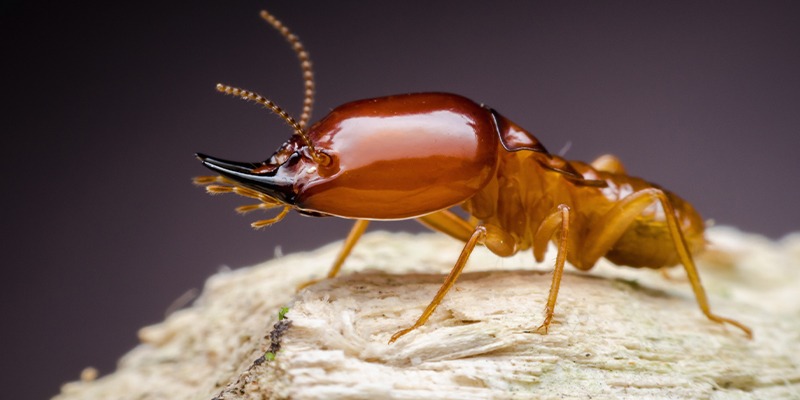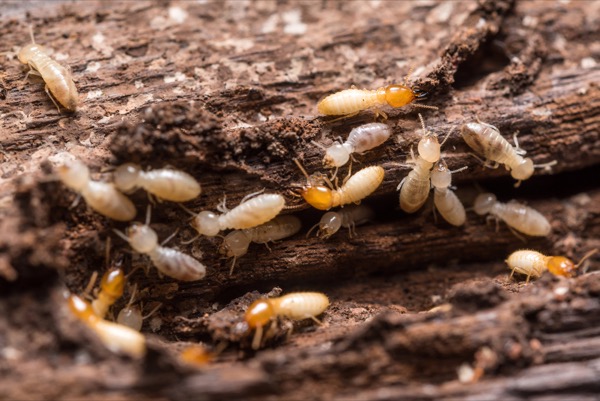Reliable Ant Control: Specialist Services to Get Rid Of Ant Infestations
Wiki Article
Environmental Effect of Parasite Control: Harmonizing Effectiveness With Sustainability
The environmental effect of parasite control is an important problem that calls for a fragile balance in between attaining effectiveness in making sure and managing bugs sustainability of our ecological communities. As we make every effort to safeguard our plants, homes, and wellness from the dangers postured by insects, the methods we employ can accidentally harm the environment. From using dangerous chemicals that seep into our soil and water to the unplanned effects on non-target species, the effects of traditional parasite control practices are far-ranging. There are emerging approaches that supply hope for an extra sustainable approach to pest administration. These options not just aim to deal with the immediate pest issues however also think about the lasting health and wellness of our planet.Unsafe Chemicals in Pest Control
The usage of damaging chemicals in bug control presents considerable ecological and wellness dangers that require careful factor to consider and reduction methods. Pesticides, herbicides, and chemicals are generally made use of to eliminate bugs, however their widespread application can cause unintentional consequences. These chemicals can pollute dirt, water sources, and the air, impacting not only the targeted pests but additionally advantageous bugs, wildlife, and people.
To address these threats, integrated bug monitoring (IPM) methods are being promoted as a more sustainable choice. IPM involves a combination of methods such as organic control, environment adjustment, and the targeted use pesticides as a last option (ant control lewisville nc). By adopting a holistic strategy to pest control, we can decrease the environmental and health influences connected with dangerous chemicals while efficiently managing pest populations
Effect On Non-Target Variety
Taking into consideration the unintentional effects of parasite control methods, the influence on non-target types is an important element that needs thorough examination. While bug control steps intend to target certain bugs, various other organisms in the ecological community may be accidentally affected. Non-target varieties, consisting of useful pests, birds, animals, and also plants, can endure direct or indirect harm from pesticide applications or organic control methods.Chemicals can have sub-lethal or deadly results on non-target species. Pesticides made to battle a certain bug parasite may damage pollinators like bees or all-natural predators such as ladybugs. Additionally, chemical residues can build up in the atmosphere, affecting non-target organisms gradually. Organic control representatives, if not species-specific, can pose risks to unexpected targets, interfering with the ecological equilibrium.
To alleviate the impact on non-target varieties, incorporated parasite management (IPM) techniques that highlight a holistic method to pest control are suggested. These methods prioritize using eco-friendly practices, reducing injury to helpful microorganisms while properly handling pest populaces. Performing complete threat analyses and keeping an eye on the end results of parasite control initiatives are essential steps in protecting non-target species and promoting overall community health and wellness.
Soil and Water Contamination
Unintended ecological effects of insect control methods expand beyond affecting non-target types, with significant implications for dirt and water contamination. Chemicals, herbicides, and chemical fertilizers used in parasite control can leach into the dirt and contaminate groundwater, posing a risk to both terrestrial and water environments. Soil contamination can interrupt the balance of microorganisms necessary for nutrient biking and plant development, resulting in lowered dirt fertility and performance. These chemicals can persist in the atmosphere for extensive durations, building up in the soil and possibly getting in the food chain.Water contamination is another critical issue related to insect control practices. Drainage from agricultural areas treated with pesticides can carry these chemicals right into close-by water bodies, influencing water this link organisms and water high quality. Pollutants in water resources can have far-reaching consequences, affecting not just water life however also human health and wellness with the intake of infected water or aquatic microorganisms. To minimize dirt and water contamination from pest control activities, integrated pest management strategies that prioritize sustainability and minimize chemical inputs are essential.
Air Pollution From Chemical Usage
Direct exposure to airborne chemicals throughout farming applications presents a considerable concern for air pollution control steps. When chemicals are splashed onto plants, they can volatilize into the air and type volatile natural compounds (VOCs) and various other airborne toxins. These chemicals can add to the formation of ground-level ozone, a major part of smoke that can have destructive results on human health, plant productivity, and overall air top quality. Additionally, pesticide drift, where pesticides are brought by the wind to unplanned areas, can result in the contamination of neighboring environments and water bodies.
Techniques for Sustainable Parasite Control
In the realm of agricultural methods, executing lasting pest control methods is paramount for preserving ecological balance and securing crop yields. Sustainable insect control highlights using eco-friendly approaches to handle parasite populations efficiently while decreasing injury to non-target microorganisms and communities. Integrated Bug Monitoring (IPM) is a widely embraced approach that integrates organic, cultural, physical, and chemical control techniques to attain long-lasting bug monitoring solutions.Plant turning and diversity are additionally efficient techniques to interrupt pest life cycles and create much less beneficial problems for pests to flourish. Ultimately, by integrating these lasting bug control strategies, farmers can attain a balance in between pest management performance and ecological stewardship.
Verdict
Finally, the environmental influence of insect control techniques should be meticulously taken into consideration to stabilize efficiency with sustainability. Unsafe chemicals made use of in bug control can lead to dirt and water contamination, air contamination, and damage non-target varieties - termite control. It is crucial to implement lasting bug control methods to minimize these unfavorable results on the setting and advertise a healthier community for future generationsBy taking on an alternative approach to pest control, we can lessen the ecological and health effects connected with harmful chemicals while effectively taking care of pest populaces.

To minimize the air pollution triggered by chemical usage, it is vital to embrace integrated pest administration methods that prioritize the use of non-chemical bug control techniques, such as crop rotation, all-natural killers, and resistant crop varieties. Lasting parasite control highlights the use of ecologically friendly methods to take care of insect populations successfully while lessening harm to non-target microorganisms and ecosystems. Integrated Insect Monitoring (IPM) is a commonly adopted approach that combines organic, cultural, physical, and chemical control techniques to achieve lasting insect administration options.
Report this wiki page